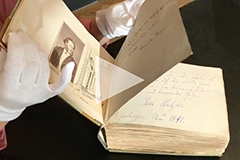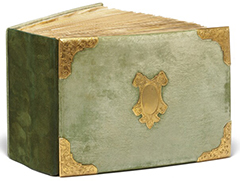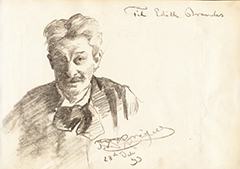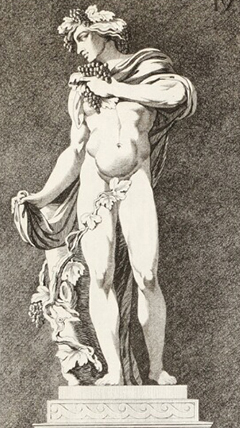The Brandes Family’s Unique Album
The Prominent Network of a Famous Dane
The Danish critic and lecturer Georg Brandes (1842-1927) is today considered one of the most influential figures in Danish culture and literary history. As a standard-bearer for “The Modern Breakthrough” in the 1870s and 1880s and the person who introduced the ideas of Friedrich Nietzsche in Denmark, Brandes became a well-known intellectual figure in Europe. His often provocative views and progressive ideas were greatly influential in the intellectual and cultural life of contemporary times.
A unique and highly tangible proof that Brandes' fame stretched far beyond the borders of Denmark is found with the monumental album that is up for auction in Bredgade, Copenhagen. It was Georg Brande's daughter, Edith, who decided to gather and document the father's many meetings with intellectuals of a similar mind-set. Perhaps without thinking much of it, she has provided posterity with a wonderful opportunity to gain an insight into the father's huge network and prominent circle of acquaintances.
A Plethora of Famous People
The book, collected over a period of more than fifty years, contains more than 250 original contributions in the shape of letters, photographs, autographs, drawings, etc. from a wealth of famous thinkers, writers and artists who invoke the presence of history. A clear example of this is H.G. Wells. The author, who almost single-handedly invented the science fiction genre, writes to Edith: ”Dear Mrs Philipp. It must be very jolly to be the daughter of Georg Brandes who is the literary father of so many of us and the good uncle of all contemporary writers. Yours sincerely H.G. Wells.” A finer praise is hard to imagine from such an influential contemporary of Brandes.
”Mundus Vult Decipi” – A Greeting from Einstein
A contributor outside the field of literature, but not entirely without significance for world history, is Albert Einstein, who has written the pithy Latin remark "Mundus Vult Decipi", which translates to "the world wants to be deceived." The words were written in 1920, and it remains an open question whether the great physicist with these words wanted to emphasize his basic scepticism towards the progress of the world.
Among the other aesthetes of the book are also names such as Rainer Maria Rilke, Anatole France, Henrik Ibsen, Bjørnstjerne Bjørnson, Henry James, Thomas Mann, Auguste Rodin, August Strindberg, Leo Tolstoy, Emile Zola, Selma Lagerlöf, Marie Curie, Albert Dreyfus, Ellen Key, Mylius-Erichsen, Fridtjof Nansen, John Stuart Mill, Michael and Anna Ancher, P.S. Krøyer, Herman Bang, Henrik Pontoppidan, Gustav Wied and many more.
Books with Famous Views
The auction also offers several other rare illustrated books, including the Russian book printer Alexander Pluchart’s ”Nouvelle Collection de Quarante-deux Vues de Saint-Pétersbourg” – a famous collection of early Russian lithographs from 1826 that show scenes of palaces, monuments, daily life, bridges and transportation in Saint Petersburg in the beginning of the 19th century. Included in the auction is also Johannes Wiedewelt’s beautiful work ”Monumenta Fredensburgica iussu Friderici V. Erecta” from 1769, which contains more than 30 engraved plates of sculptures from Fredensborg Castle.
The books will be sold in Bredgade 33 in Copenhagen on Tuesday, 19 September. The preview will take place on Thursday, 14 September until Monday, 18 September at the same address.
View all the books up for auction
View all the lots of the traditional auction
Read more about the auction
Read about how to bid
For further information, please contact:
Lærke Bøgh: +45 8818 1217 · lb@bruun-rasmussen.dk



